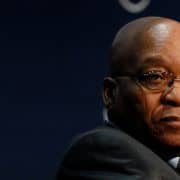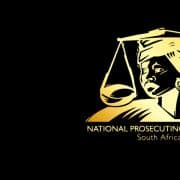|
Getting your Trinity Audio player ready...
|
Today is International Anti-Corruption Day. To coincide with the worldwide event, the government is hosting an gathering that focuses on its draft national anti-corruption strategy (NACS). The document was supposed to have been released today, but the long-awaited moment has been delayed.
Corruption Watch’s executive director David Lewis attended the event. Read his speech below:
Until yesterday we had been asked to prepare a response to the release of the government’s draft national anti-corruption strategy (NACS). While this is, as you’ve heard, not to be, we and other pertinent civil society organisations (CSOs) were engaged in the process that prepared the draft. It’s a rich document that contains much that is to be welcomed, although, as is inevitable, there are some important lacunae.
But for all that the most important question is, whatever its merits, how is this document going to be received by CSOs and the public at large?
So when I was first asked to participate in this event, I hesitated and prudently consulted my board. Why? The truth is that government is so thoroughly distrusted, so deeply discredited, on the question of corruption, that this event and this document is almost certainly going to be greeted with public cynicism, even anger. And so, I asked myself, is CW’s endless quest to gain the trust and support of the public not better served by standing with the public and throwing stones at those sufficiently cynical to stand here and pretend to commit themselves to combating corruption?
But on thinking it through and after discussion with our board, I eagerly accepted the invitation and that for three reasons:
Firstly, there is much of value in the draft document and we trust that the substantive changes will not be great. That is not to say that it is perfect – few policy documents are and the purpose of the public engagement that is being launched today is precisely to improve it. Moreover, the strategy, whenever it is released, is just words on a piece of paper, but then so too are all documents; so too is the Constitution. It is for us to breathe life into these words.
And, in the first instance, we do that by encouraging the public to engage in an active discussion of the contents of this document. For this reason we propose that the public consultation process should not only consist of a meeting with a few CSOs but should rather engage directly with the public. The ponderous, stodgy GCIS is going to have to up its game massively to manage an effective, innovative public communication programme but that’s what is needed if this is to have any chance of gaining traction.
Secondly, to refuse to participate in this event would be to miss the opportunity to publicly acknowledge and to pledge our support to those in government who are sincerely attempting to tackle corruption and who have been willing to engage with us in doing so. By way of example, we have a mutually respectful and productive relationship with the national treasury and with the Gauteng government and many of its departments. We are not in bed with each other; we don’t love each other. In fact we’re currently involved in a robust disagreement with the Gauteng Department of Education, arguably the government department most responsive to us, because we are dissatisfied with their lack of progress in taking disciplinary action against corruption perpetrators.
But, for all that, we respect each other; we understand that we are both committed to tackling the same problem, a problem that can only be tackled when the public, the private sector and the government work together.
Thirdly, this occasion gives us the opportunity to reflect on those who are responsible for rampant corruption, who are responsible for the cynicism with which this document will inevitably be received. Because, the truth is that for every responsive public sector entity there are a vastly greater number who are unable or unwilling to do anything positive about corruption on their turfs.
Take the Department of Home Affairs, for example. We have exposed rampant corruption in their treatment of refugees and asylum seekers. We have attempted to engage with the department and the ministry in order to find solutions. We have asked them to set up a channel with us whereby we can submit reports to them which will be acted on. This modest, costless proposal has been rejected out of hand. Why? I can only believe it’s because senior official are materially benefiting from this corrupt conduct and because refugees and migrants are of no concern to the minister and the senior officials of Home Affairs. They are powerless and so acutely vulnerable to abuse of the great power wielded by officialdom.
Of course this contempt for the poor and the vulnerable doesn’t end with refugees. So we have to similarly conclude that the minister and Department of Social Development is so unconcerned at the plight of poverty-stricken South Africans that it feels comfortable condoning and participating in massive corruption and wastage in the management of the social grants scheme, thus putting the entire massive welfare scheme in jeopardy?
And we could pose similar questions to the ministers and leading officials of Cogta, energy, mineral resources, justice, police and communication and to the leadership of public institutions such as Eskom, the SABC, SAA, SARS, the Hawks and the National Prosecuting Authority (NPA) and the list goes on right up to the president himself.
There are, to be sure, some encouraging signs in the battle against corruption. We have great public institutions such as the Treasury and the South African Reserve Bank. We are greatly cheered by some of the initiatives emanating from the Chief Procurement Office. In recent weeks our courts, thankfully still robustly independent, have signaled their opposition to impunity by passing stiff sentences on several criminals, including the politically powerful John Block (although his sentence is lighter than it should have been). In one recent case – that involving a former Eskom executive – the prosecutors asked us to provide expert testimony on the appropriate sentence and we are pleased to have contributed to the 20-year sentence imposed in that instance.
We salute Premier Makhura’s laying of criminal charges against senior officials in his government and his enduring commitment to confronting corruption in this province, something that makes us proud to be citizens of Gauteng. We are delighted at the public determination demonstrated by the chairperson of Parliament’s Standing Committee on Finance in resisting the attempts by the president to review, on spurious grounds, an act of parliament – the Financial Intelligence Centre Act – whose provisions are critical in tackling grand corruption.
And civil society is also increasingly engaged in opposing corruption. It is clear that where government fails to act against corruption civil society will exert pressure be it at the ballot box or in the streets. The president complains about excessive use of the courts but if the state does not prosecute the corrupt and, indeed, positively obstructs the prosecution of the corrupt, then we will go to the courts. And so because government refuses to even change the many corrupt state-owned enterprise (SOE) board members we are examining the possibility of having a range of SOE directors declared delinquent, effectively making them ineligible to serve on any board of directors. We have filed criminal charges against the SARS commissioner and several of his officials – the officials for corruption, the commissioner for failing to report it. If the state does not prosecute this then we will.
And business is showing distinct signs of activity in the fight against corruption. Not only are they getting their own houses in order but they were active in having the hapless Minister van Rooyen removed from the finance ministry and their appearance at the barricades on 2 November is unprecedented and welcomed.
We would like to view the NACS as a signal that government is seriously coming to the party. However, even if all the recommendations in this document were to be implemented, the impact will be limited until we solve two related problems. These are
- Firstly, corruption in the leadership of the NPA and the Hawks. Suffice to say that as of now several current leaders of the NPA have been struck off the roll of advocates; others including the NDPP have clearly allowed political considerations to determine their prosecutorial decisions. The fitness to serve office of the head of Hawks will be decided by the courts and, given that the courts are almost certain to find that lying under oath is a disqualification for this key police post, will be removed from his post; and
- Secondly, impunity at the highest level of the state enjoyed by board members and executives of leading SOEs, ministers and the president himself. This discordant tone from the top is not only costly on its own terms but accounts for much of the corruption that infects the lower reaches of government.
The relationship between these two massive problems is obvious: as long as those who are responsible for appointing the leadership of the police and the prosecutorial authorities have reason to fear the actions of truly independent law enforcement authorities, then you can bet your bottom dollar that these will be the most compromised institutions in the land.
While it would not be true to say that nothing can be done without first overcoming these problems, it is certainly true to say that without resolving them we will not be able to make significant inroads into reducing corruption.








